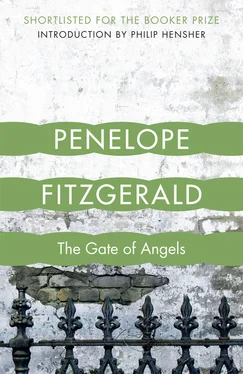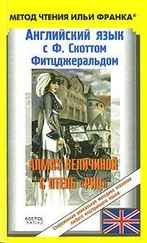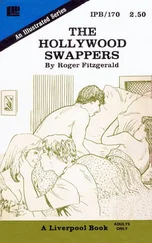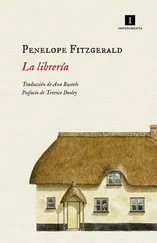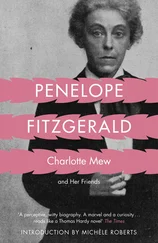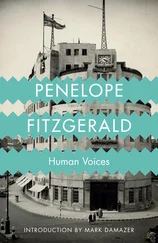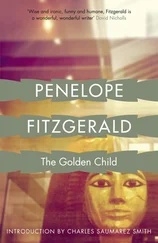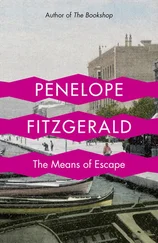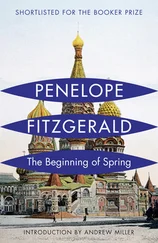With her devotion to the unobservable and the barely glimpsed, it was to be expected that Fitzgerald had some interest in the ghost story. Almost her last publication was an introduction to a Penguin collection of M. R. James’s ghost stories; almost her first fictional publication was a chillingly authentic ghost story with the real M. R. James touch, ‘The Axe’. In the Penguin introduction, she draws attention to James’s real-life disdain for science and abstract thinking in general. It was starting to impinge on his own studies of the unseen. The life of Cambridge before the Great War was divided into the investigations of M. R. James and those of the Cavendish laboratory. ‘What truly distressed him, however, was the division of King’s into the Pious and the Godless, while in the Cavendish laboratory young physicists were at work constructing new models of a world without God. It was not scientific accuracy that Monty objected to but a sense that mankind was occupying the wrong territory.’
That division of humans at work at the invisible, between scientists and those in thrall to the numinous, to ghosts and angels, drives this novel too. It contains a brilliant pastiche of an M. R. James story. At the heart of Fitzgerald’s world is a sense that pre-occupations with the invisible come down to an investment in blood and flesh, too. ‘Thought is blood,’ Skippey says at the beginning; it is not the first time the point is made in a Fitzgerald narrative, nor will it be the last. Often, M. R. James’s ghost stories culminate in a physical sensation: his antiquaries have gone for long years without feeling another’s touch, and the feel of ‘a cold kind of face pressed against my own, and moving slowly over it’ (‘The Treasure of Abbot Thomas’) has a horrid intimacy. The Gate of Angels recreates that moment of intimacy disrupting the touchless life of the mind, not just in the ghost story (‘Someone was hauling against me, stroke by stroke …’) but in another register, in the love story.
At the tender heart of The Gate of Angels is Fitzgerald’s most entrancing heroine, Daisy; a person who does not belong in Cambridge and who transforms it. The painful clarity of Daisy’s hard-won path out of extreme poverty through nursing, only to lose it again, is one of those moments where a novelist’s fierce personal conviction appears to be making itself felt. Only with the appearance of Hermione Lee’s biography of Fitzgerald in 2013 did it become apparent with what good reason Fitzgerald feared extreme poverty, and what experience she had of losing everything. Daisy is brought together with Fred in the most deliberately arbitrary manner; their worlds do not belong together, and their collision disrupts all hierarchies and conventions. They are placed together, thanks to Daisy’s convenient wedding ring, naked in a double bed, and their relationship proceeds from there. A nice touch; Fred’s nakedness is less alarming to Daisy than her acknowledgement of it is to him.
What brings Daisy and Fred together is a clarity of vision, interrupted in Fred’s case by a storm of emotion. Both of them have been forced to see things lucidly by economic circumstances; Fred’s watch ‘was a silver watch, belonging to his father, given to him when he took up his appointment, and yet not quite given to him either, since when he went back on vacations his father tended to borrow it back’. In his many jobs at his college ‘… assistant organist, assistant librarian, deputy steward and assistant deputy treasurer … the words assistant, deputy, and so forth didn’t mean that there was necessarily anyone above him to do the work, only that he must do it without being paid’. Daisy has no illusions; south London has stripped her of those, and she rides the tram with a hat-pin and someone else’s wedding ring, against assault. When they meet in extraordinary circumstances, they are free to see the world as it really is; that neither of them really do is witness to the transformative power of the encounter. Fred’s confusion is immediately apparent, and Daisy seems to understand more at first: ‘Fred was appalled. “Don’t you know what you are to me?” he asked. Daisy considered. “I suppose I do know, Fred. To tell you the truth, a child of six would notice it.”’ But her delusions take longer to unwind, and shock her more thoroughly.
They are at home, with their capacity for precision and clarity, in the world of Fitzgerald’s novels. Fred remarks at one point that the word of a writer of fictions is not to be trusted; but he only partakes in, and does not absorb, Fitzgerald’s style. It is a matter not just of observing emotions exactly, but of placing their drama within an exactly notated physical context. In one virtuoso passage, Mrs Wrayburn considers her life:
Every day (in addition to cups, plates and dishes) demanded toast-racks, egg-cups, egg-cosies, hot water jugs, hot milk strainers, mustard-pots manufactured of blue glass inside, metal outside, silver fruit knives (as steel in contact with fruit-juice was known to be poisonous), napkins with differently coloured rings for each person at table, vegetable dishes with handles in the shape of artichokes, gravy boats, dishcovers, fish-forks with which it was difficult to eat fish (but fish-knives were only for vulgarians), muffin-dishes which had to be filled with boiling water to keep the muffins at their correct temperature, soup-plates into which the soup was poured from an earthenware container with a lid, cut-glass blancmange dishes, knife-rests for knives, fork-rests for forks, cheese dishes with lids the shape of a piece of cheese, compotiers, ramekins, pipkins, cruets, pots.
The exactness of detail doesn’t serve to suggest lavishness, but an array of things which their owners’ devotion to the unseen and the speculative seeks to escape. For us, however, it creates a world of credibility. The particularity of Fitzgerald’s observation, her research and her invention makes even the oddest and most unexpected actions of her plot believable. Only afterwards does the reader wonder – can cows be upturned by the wind like that? Has the novelist invented a St Angelicus College? Can a period detail as perfect as the substance containing Health Plasmon which ‘may be combined with a variety of substances to make nourishing dishes without the necessity of cooking them’ be anything but the product of research rather than imagination? (‘“It looks like cornflour to me,” said Daisy.’) The world is made up of fork-rests and Plasmon and invisible particles, exactly described. Are they real? Are they speculative? The Gate of Angels is a beautifully precise exercise of the novelist’s most illusionary skill, and a witty meditation about the practice of that art in the first place.
The obvious interpretation of Fitzgerald’s remarkable career, promoted by her, is that after four novels exploring aspects of her own life, she turned to the historical novel, and constructed remote and peculiar realities. There is something in that, but another reader might contemplate the ways in which she found possibilities to explore the peculiarities of love between the unalike in historical circumstances. Only in these novels did she find a way to pursue a convincing love affair in fiction, and all these late love stories are between impossible partners, whose link is somehow broken from the start. What events lay behind this development is impossible to say, and she could clearly only explore the subject once it was removed from her immediate circumstances. What remains, in these extraordinary, impassioned and exact novels is a world where thought and body, the solid and the unseen, the highest intellect and the basest behaviours and feeling unify in ways never envisaged before. Cambridge has always been very much one of the places where such unifications take place. It took the sharp eye and long contemplation of a Penelope Fitzgerald to give it such concise expression, however.
Читать дальше
